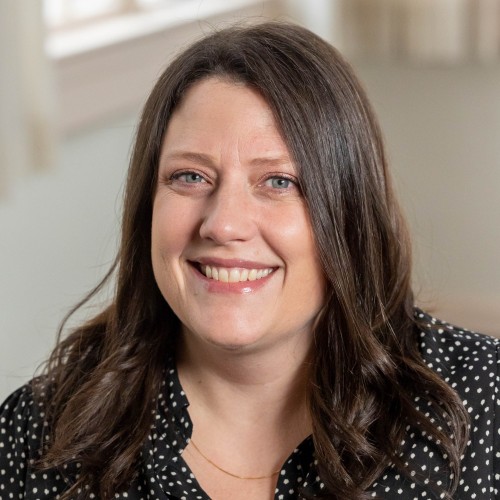M.Ed. in Bilingual Education Courses
The Master of Education (M.Ed.) in Bilingual Education is a 30-credit degree program leading to a master's degree in education with a specialization in bilingual education, with or without endorsement. All courses meet over a seven-week term.
Core Coursework
All M.Ed. students are required to take these five core courses before completing the additional coursework for their specialization or licensure. Students can choose to take these core courses online or in-person at our locations in Easton, Boston or Cape Cod.
This course covers current policy and practice related to English Learners (ELs) in schools with a special focus on Sheltered English Immersion (SEI) Settings. Topics will include diversity issues, content/academic vocabulary development and literacy skills (including listening, speaking, reading and writing) to provide teachers with the knowledge and strategies to support ELs in classrooms.
*May be waived with documented, state-approved sheltered English immersion (SEI) endorsement.
This course introduces students to the reality of schools as diverse spaces encompassing a range of student needs and examines efforts to ensure equity in education. Issues of race, class, culture, language, gender, gender identity and expression, sexual orientation, and ability will be discussed & examined, especially how they intersect to reproduce inequality. Students will reflect on individual beliefs in relation to social justice education and democratic education and examine unintended consequences of policy/practice that create or perpetuate inequitable environments and opportunities in schools. Strategies for promoting educational equity and inclusivity will be discussed.
This course examines and unpacks contemporary issues in the field of education and provides prospective teachers with a beginning foundation for understanding the teaching profession and the U.S. education system, including policy and governance. The historical, legal, ethical, and pedagogical foundations for social justice education and democratic education will be explored, as well as the education reform context and emerging policies. The course will include an examination of professional ethics and standards.
Required field experience.
This course explores supportive, preventative, and proactive approaches to addressing the social and academic behaviors of students with disabilities and other diverse populations. Strategies for developing a positive classroom climate to support social and emotional development, including trauma and anxiety, will be central to the learning of the course. A variety of approaches, including the connection between communication & behavior, identifying contributing factors to challenging behavior, FBA, and behavior support plans will be explored.
This course is taken concurrently with a graduate practicum or internship. This capstone seminar will focus on social justice education, professional culture, family & community engagement, collaboration, and curriculum and planning for educational contexts. Students will reflect on experiences in the practica/internship site and current issues and best practice in education, including trauma and social emotional learning.
Bilingual Education Courses
This course will provide students with the opportunity to explore the educational foundations of bilingual and dual language education through an equity lens. Students will examine the history of language education throughout the world, specifically looking at the history and theoretical foundations of language education in the United States, including the political contexts and legal foundations. Students will explore multidisciplinary perspectives on bilingualism and biculturalism and will analyze equity within bilingual and dual language education programs.
This course will expand students’ knowledge of inclusive instructional design. Students will explore key themes of culturally responsive teaching and will learn how to integrate these practices into the inclusive bilingual classroom. Students will design and implement lessons using culturally responsive and evidence-based instructional practices.
This course will examine language and literacy development in bilingual education settings. Students will learn principles of language acquisition, including differences and similarities between first and second language acquisition. The course will also highlight how to support oral language development across the content areas. Students will learn evidenced-based and culturally relevant reading and writing strategies and how to incorporate these strategies across the content areas.
In this course, students will learn how to effectively and equitably assess multilingual learners in the context of the bilingual classroom. The course will outline the different types and purposes of assessment, including how to align assessment with curriculum design. Students will discuss how to utilize assessment to guide instruction and support student learning. The course will also address and unpack how linguistic and cultural differences may impact assessment and how to ensure student assessment is equitable and reflective of students’ learning.
During this field-based experience and accompanying seminar, students must spend at least 75 hours in a PreK through grade 12 bilingual education setting. In the bilingual education setting, students will apply what they have learned within their coursework into their clinical setting, while also being supervised by a qualified bilingual educator. In the accompanying seminar, students will be expected to discuss their field experience, reflect on their instructional practices within their bilingual education setting, and engage in discussions with classmates.
Contact Information
